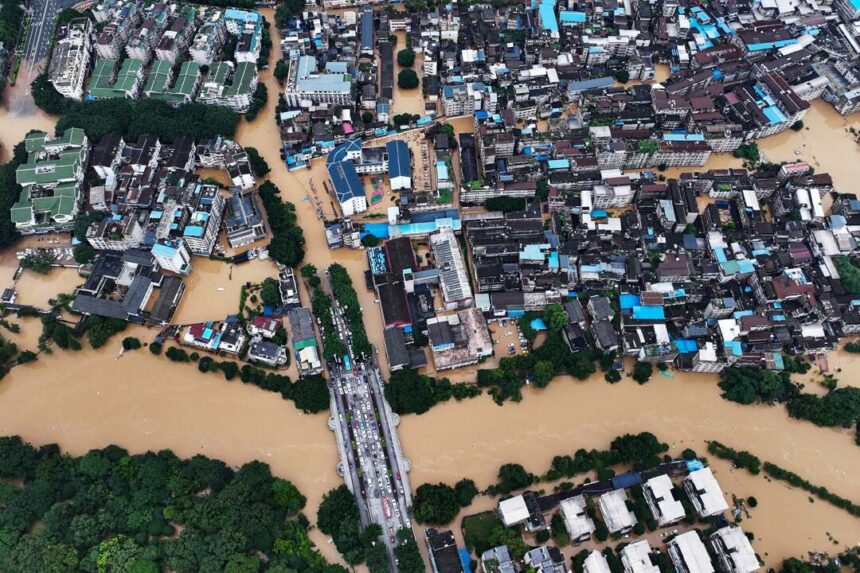. Wang emphasized that “China’s vast reservoir network poses a strategic vulnerability in times of war or conflict. With the potential to disrupt water supply, electricity generation, and cause catastrophic flooding, China’s network of reservoirs could be targeted by adversaries seeking to weaken the country’s infrastructure and population.”
He concluded by stating that “China must reassess its reservoir policies, prioritize transparency and safety, and consider the ecological and societal impacts of its extensive dam construction. The recent floods in southern China serve as a stark reminder of the urgent need for responsible reservoir management to protect lives, property, and national security.”
Wang emphasized that the presence of reservoirs in conflict zones, particularly given China’s current adversarial stance, exposes critical vulnerabilities in its dams.
Shishan, a senior editor at The Epoch Times, highlighted the disproportionate burden placed on the public in exchange for the undeniable benefits of reservoirs. He criticized the Chinese communist regime for prioritizing economic gains from reservoir projects while disregarding the risks faced by its citizens.
Dam Collapse Killed 230,000 During China’s Cultural Revolution
Guo Jun, editor-in-chief of The Epoch Times Hong Kong edition, discussed British historian Arnold J. Toynbee’s views on despotic systems in agricultural societies, linking them to the control of water resources. She noted the historical connection between reservoir construction, economic benefits, and societal control in China.
Ms. Guo recounted a tragic incident during the Cultural Revolution in 1975, where over 230,000 people lost their lives due to the collapse of multiple reservoirs in Henan’s Zhumadian region. Despite official reports initially downplaying the death toll, subsequent sources revealed the true scale of the catastrophe.
She highlighted the Banqiao Reservoir collapse as a consequence of poor construction and governmental oversight, leading to a chain reaction of failures among other reservoirs. This incident, similar to the 2021 floods in Zhengzhou, exemplifies the human errors in water management in China.
Ms. Guo also discussed the environmental impact of reservoir construction on regions like Beijing and Tianjin, leading to water scarcity and necessitating large-scale diversion projects.
“Such man-made disasters highlight the ongoing challenges in China’s water management practices,” she concluded.
Views expressed in this article are opinions of the author and do not necessarily reflect the views of The Epoch Times.





